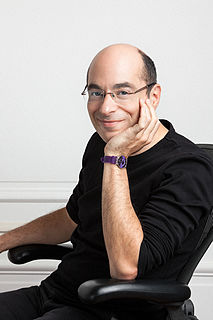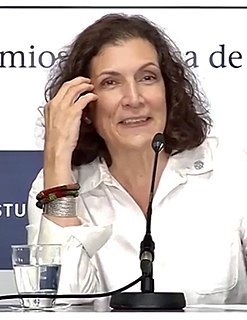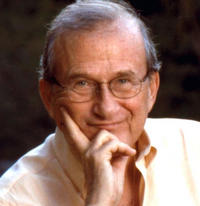A Quote by A. S. Byatt
I don't only write about English literature; I also write about chaos theory and... ants. I can understand ants.
Quote Topics
Related Quotes
I think the 'Terminator' idea is a reasonable one - that is that one day the Internet becomes self-aware and simply says that humans are in the way. After all, if you meet an ant hill and you're making a 10-lane super highway, you just pave over the ants. It's not that you don't like the ants, it's not that you hate ants; they are just in the way.
One of the things I always underscore when I teach criticism is that young critics, or would be critics, frequently have this illusion that if they write about music they're somehow part of music, or if they write about movies they're part of movies, or of they write about theater they're part of theater, or write about literature. Writing is a part of literature, we belong the species of literature. If you add all the music reviews together that have ever been written, they don't create two notes of music.
If army ants are wandering around and they get lost, they start to follow a simple rule:Just do what the ant in front of you does. The ants eventually end up in a circle. There's this famous example of one that was 1,200 feet long and lasted for two days; the ants just kept marching around and around in a circle until they died.
Consider this: all the ants on the planet, taken together, have a biomass greater than that of humans. Ants have been incredibly industrious for millions of years. Yet their productiveness nourishes plants, animals, and soil. Human industry has been in full swing for little over a century, yet it has brought about a decline in almost every ecosystem on the planet. Nature doesn't have a design problem. People do.
My teachers always said, "You're very talented, but don't set your heart on art. You're only a girl." I was inspired by Virginia Woolf in 1960, but they wouldn't let me write about her. They said she was a trivializer. I also wanted to do a paper on Simone de Beauvoir, and my philosophy teacher said, "Why would you write about the mistress? Write about the master." That was Sartre.
People write about getting sick, they write about tummy trouble, they write about having to wait for a bus. They write about waiting. They write three pages about how long it took them to get a visa. I'm not interested in the boring parts. Everyone has tummy trouble. Everyone waits in line. I don't want to hear about it.
The only reason we write - well, the only reason why I write; maybe I shouldn't generalize - is so that I can find out something about myself. Writers have this narcissistic obsession about how we got to be who we are. I have to understand my ancestors - my father, his mother and her mother - to understand who I am. It all leads back to the narcissistic pleasure of discovering yourself.
I know one thing - very few writers in Southern California get to write what they want to write. We are more or less worker ants, working for either film companies or tv companies or Internet companies. We do a lot of assigned work. Feelings hardly ever enter into it. If they do, they tend to be on a sort of soap opera level.







































